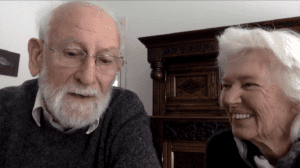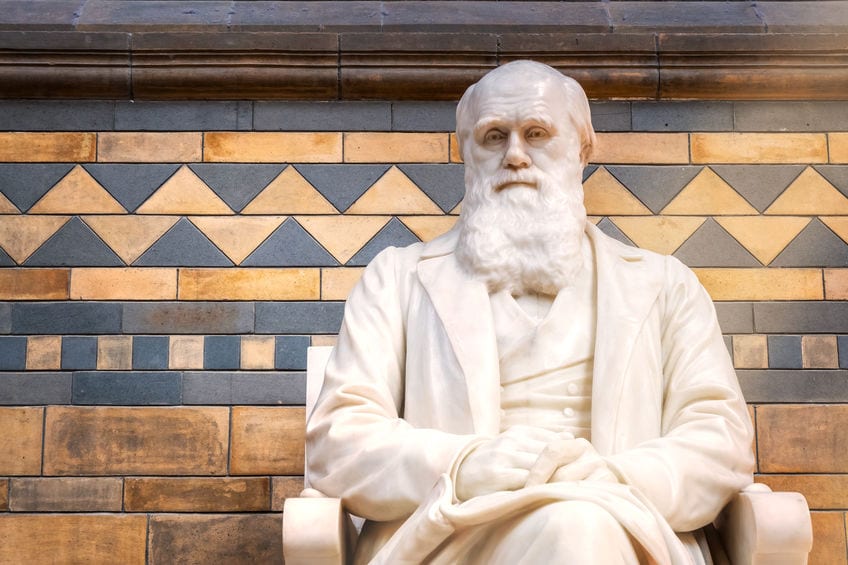CLEMSON, South Carolina – Charles Darwin proposed the theory of evolution through natural selection. Peter and Rosemary Grant, a husband-and-wife team of renowned researchers, saw it in action and documented it over four decades of studying Darwin’s finches on a Galapagos volcanic island.
The Grants, who are arguably the world’s most famous evolutionary biologists doing fieldwork, detailed their research virtually via Zoom during Clemson University’s College of Science Darwin Lecture on Feb. 12, which was the 212th anniversary of Darwin’s birth.
While Darwin spent just five weeks on the Galapagos Islands as part of a five-year voyage to study flora and fauna in South America and the Pacific, the work he did and the specimens he collected were instrumental in the development of his theory of evolution through natural selection.
“The work of the Grants has had a seminal influence in the fields of population biology, evolution and ecology,” said Robert Anholt, Provost’s Distinguished Professor of Genetics and Biochemistry and also director of faculty excellence initiatives in the College of Science.

The Grants’ work was conducted on Daphne Major, a small, uninhabited island in the Galapagos. The Grants showed that evolution is a much more rapid process than even Darwin thought. Jonathan Weiner’s Pulitzer Prize-winning book titled “The Beak of the Finch: A Story of Evolution in Our Time” chronicled their work.
The Grants, both of whom are emeritus biology professors at Princeton University, spent several months each year from 1973 to 2012 capturing, tagging, measuring and taking blood samples of Darwin’s finches.
During their lecture, the Grants outlined how ecological changes affect a species. For instance, during the drought, the island’s supply of small, soft seeds was depleted, forcing the finches to turn to the large woody fruits of Tribulus plants. Large beak birds could crack the fruit to get to the seeds inside. Small beak birds could not, and they died at a much higher rate than the large beak birds. Beak size is heritable, and the next generations of medium ground finch had measurably larger beaks.
“We can say that evolution occurred as a result of natural selection on a heritably varying trait that occurred with environmental change and for mechanical reasons,” Peter Grant said.
Big Bird
The appearance of a strange bird on the island was another key event during the Grants’ research. This male bird was much larger than the island’s resident species and sang an unusual song. “Big Bird,” which came from another Galapagos island over 60 miles away, bred with a smaller resident Geospiza fortis finch to start a new lineage.
“This new lineage is functioning as a separate species. The question is, will it die out through inbreeding depression? It is quite in-bred, but there’s still a lot of genetic variation. We have seen no sign of it yet,” Rosemary Grant said. “Whether it survives or not, this new lineage gives insights into how a new species could arise and either persist or become extinct.”
She ended the lecture by reading part of the last sentence of Darwin’s “On the Origin of Species.” “Whilst this planet has gone cycling on according to the fixed law of gravity, from so simple a beginning endless forms most beautiful and most wonderful have been, and are being, evolved.”
Providing Answers
“I think we have seen, and particularly in your department at Clemson, combining genomic studies with in-depth ecological research of natural populations will provide more comprehensive answers to why the world is so extraordinarily rich in numbers, diversity and complexity of species,” she said. “We are losing these endless forms most beautiful and most wonderful. We know that environments and populations are dynamic and constantly changing. For a healthy environment, we really must keep them both capable of further natural change.”
Anholt said it is important to celebrate Darwin’s birthday and his contribution to science.
“Charles Darwin is one of the grand luminaries of biology. He formulated the theory of evolution, and Theodosius Dobzhansky once said that ‘nothing in biology makes sense except in the light of evolution.’ Darwin is the grand guru of biology,” Anholt said. “Charles Darwin is to biology what Albert Einstein is to physics.”
Get in touch and we will connect you with the author or another expert.
Or email us at news@clemson.edu

